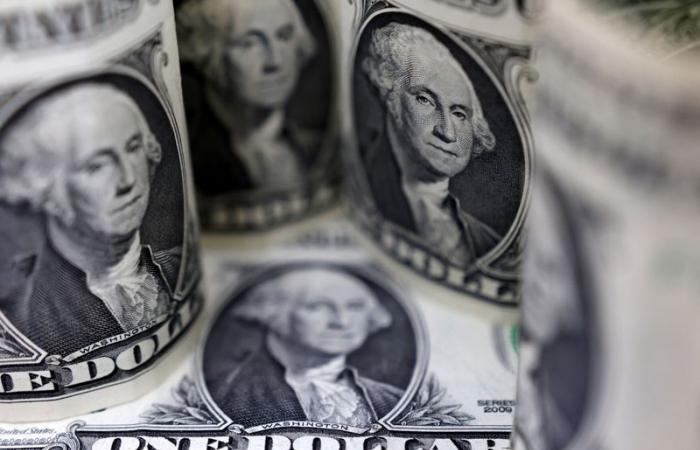The U.S. dollar hovered near a near 38-year high against the yen on Tuesday, following a surge in Treasury yields as investors contemplated the possibility of a second Donald Trump presidency.
The euro remained firm as rival French political parties joined forces to try to prevent the far-right National Rally (RN) from taking power.
Stocks were broadly mixed in Asia, while crude oil rose after a strong rally in the previous session.
Later in the day, U.S. Federal Reserve Chairman Jerome Powell will speak at an event hosted by the European Central Bank, focusing on the path of U.S. monetary policy in a week that will see several closely watched jobs reports, including Tuesday’s JOLTS job openings data, a favorite of the Fed.
The dollar was slightly stronger at 161.56 yen on Tuesday, holding near an overnight high of 161.72 yen, a level not seen since December 1986.
The currency pair is very sensitive to U.S. yields, with the benchmark 10-year Treasury yield rising nearly 14 basis points to 4.479% to start the week. Analysts attributed the move to expectations that Trump would win the presidency, which would lead to higher tariffs and government borrowing. The 10-year yield stood at 4.4534% in Tokyo hours.
President Joe Biden’s faltering performance in last week’s debate was the trigger for the surge in yields, but an additional catalyst came with Monday’s Supreme Court ruling that Trump has broad immunity from prosecution for attempts to overturn his 2020 election defeat, said Chris Weston, head of research at Pepperstone.
“Bond traders are keeping a close eye on Trump’s rising chances of winning the White House, and the market believes Trump 2.0 will be inflationary,” Weston said.
The yen’s malaise has put traders on alert for Japanese intervention, after the authorities spent about 9.8 trillion yen ($60.65 billion) in the days between late April and early May, when the currency collapsed to 160.82 per dollar.
Meanwhile, the euro maintained its footing against the greenback, falling 0.07% to $1.0733, after hitting $1.0776 on Monday for the first time since June 13.
Investors expressed relief that Marine LePen’s anti-immigrant, eurosceptic RN party did not win a larger share of the vote in the first round at the weekend.
Now the party’s opponents are banding together to tactically eliminate candidates from Sunday’s second round, so that only the best-placed candidate – regardless of party – faces the RN representative. The deadline to drop off the ballot is Tuesday.
Asian stocks began Tuesday with muted performance and no overall direction.
Banks helped lift Japan’s Nikkei 0.6% amid rising domestic bond yields, and property shares supported Hong Kong’s Hang Seng, which rose 0.3%.
But mainland China’s blue chips were flat, while Taiwan’s tech-heavy benchmark fell 0.8% and South Korea’s Kospi fell 0.6%.
MSCI’s broadest index of Asia-Pacific shares outside Japan fell 0.2%.
Elsewhere, crude oil rose after gains of about 2% on Monday, coinciding with the start of the Northern Hemisphere summer season.
Brent crude futures gained 0.21% to $86.78 a barrel, after rallying 1.9% overnight. U.S. West Texas Intermediate (WTI) crude rose 0.13% to $83.49, extending a 2.3% jump from the previous session. ($1 = 161.5900 yen)



